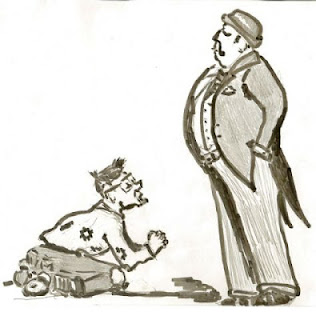Oh no! Good old Phil Mickelson, a golfer, made a bonehead statement recently. He was complaining about higher taxes on
the federal level and in his home state California saying, “doesn’t work for me
right now.” And he might have to make “drastic changes.” Oh well, he was having
a bad day after a final 66 to finish in a 10 way tie for 37th at the
Humana Challenge. Such a poor fella who has a net worth in the $100 million
range. He later apologized for his remarks.
David Brunori on the Tax Analysis Blog
chalked it up to that nasty political incorrectness but concluded it was after
all “his money.” Damned liberals wanting to take away his money.
"It’s my money and I earned it" crapola irks
me. No man (or woman) is island righties! We have these illusions about what we
own and what is ours. We own homes and land, right? Don’t pay your taxes and
see if you still own them? We are all renters whether we believe it or not.
Elizabeth
Warren has articulated it best in recent years when she said,
“There is nobody in this country who got rich on his own.
Nobody. You built a factory out there — good for you!
But I want to be
clear. You moved your goods to market on the roads the rest of us paid for. You
hired workers the rest of us paid to educate. You were safe in your factory
because of police forces and fire forces that the rest of us paid for. You
didn’t have to worry that marauding bands would come and seize everything at
your factory, and hire someone to protect against this, because of the work the
rest of us did. Now look, you built a factory and it turned into something
terrific, or a great idea — God bless. Keep a big hunk of it.
But part of the
underlying social contract is you take a hunk of that and pay forward for the
next kid who comes along.
I’ve been tired of meism for a long time.
We are all dependent on each other and we should acknowledge it and appreciate
it and work to see wealth is distributed more equally. [See my obscenity piece
before this one.]
Where would the Walton’s be without the
hard work of all the employees they refuse to pay a living wage while they accumulate
obscene amounts of wealth? Where would corporations be without the workers who
produce the materials the sell and then lower their wages while giving huge bonuses
to their CEO’s even when it is shown they do really bad work? And AIG wanted to
sue the government when it bailed them out saying they have to give unfair
concessions; Or as Business Time said, “A Heaping Helping of Chutzpah.”
Phil Mickelson may play golf as a lefty but
we know he is really a righty in more than one sense.


